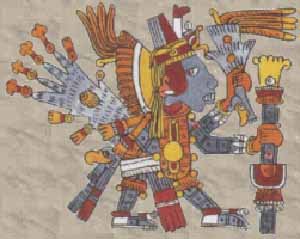Pocho as Socially Comfortable Middle-Class
A function of this blog is to document the different definitions, connotations and embodied rhetoric that 'pocho' takes on. It should be noted that many of the people in the 'list' section have 'owned' pocho, reclaiming it as a self-identification. Acuña's article
http://www.aztlan.net/pocho.htm seems to denote 'pocho' in the vein Gloria Anzaldua uses when she describes it as 'cultural traitor.'
From Acuña's article:
"I make the analogy of the pocho because when many of us entered the public schools we spoke fluent Spanish. In fact, it was our only language. Because of the lack of maintenance of Spanish our development in the language remained at a primary school level. It did not advance to reading Spanish language literature. English in many cases became our primary language. Meanwhile, we were not able to take Spanish classes until high school when we repeated like parrots, "?HOLA PACO, QUE TAL? ?COMO ESTAS?
Many former Chicano activists through a lack of political maintenance have become political pochos. They learned the basics of Chicano studies, its language, but have not advanced beyond a cultural level. They identify with the culture, but not the political dimensions of culture. Over time, they begin to think about the barrio as a justification for their entitlements. Notions such as the transformation of the barrio become alien to their political vocabulary"
It is true that Acuña is calling into question the political commitment of middle class
Latin@s and
Chican@s; however, I am interested in the use of 'pocho' and how it is deployed to denote transgression.
Update:
No, I have no real great insights that I have come to about the perceived transgressions of pochismo at this time; rather, I tracked down the Chuck Norris image that kept coming to mind every time I looked at the "El Pocho" movie poster above so I had to add it for visual juxtaposition purposes.
![poch[o]tec@](https://blogger.googleusercontent.com/img/b/R29vZ2xl/AVvXsEivFXAwf95ClTX2VO56clHOa27NUAuNgP2hWo8RhgWmzxl3q-2a2GgQPKVdOfhdfHgu8ompU7BmuFO-DQJ0K0BS5cKNAv9bdwbpAjQve0uFyLg6d66hhSMyRBytZSKvD53J0g1Ymxn2rS_8/s1600/pochoteca+2.jpg)







